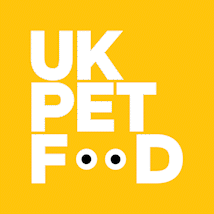Feeding guides for Dogs & Puppies
How much should I feed my dog?
Follow the feeding guidelines on the pack is the best starting point. Always weigh out food as the margin for error with measuring cups and guesstimates is too great.
As well as speaking to your vet, many pet food manufacturers provide customer care lines with feeding advice for owners, and a number also have dedicated puppy/kitten clubs.
In terms of what is the best pet food, we would recommend a specially formulated life stage diet as these have been specifically designed to meet the nutritional needs of your pet at this time in her life.
When should I feed my dog?
There is no fixed answer as to when to feed a dog. It is entirely individual.
Some owners may feed their dog once a day only, and some owners may feed their dog twice a day, whilst other owners may feed their dog three or four times throughout the day.
The key to a happy, healthy pet is feeding them the right type and right amount of food specific to their age and lifestyle. Historically, dogs are scavengers, so they will eat whenever the opportunity arises, however, this can easily lead to overfeeding.
How much to feed
Manufacturers’ guidelines found on all commercially prepared pet food packaging (including dry food and wet food) recommend total daily amounts, which can then be divided into a chosen number of meals. Your pet food manufacturer should also be able to provide further individual advice if you contact them directly.
It is important to remember that your dog's nutritional requirements and appetite will vary as they go through life and depend on a number of factors, including:
- Breed/Size
- Weight
- Life Stage/Age
- Activity Level
It is essential that your pet maintains an ideal body condition throughout life for optimum health and to try to minimise the risk and impact of conditions such as diabetes, heart disease and arthritis.
When can I start feeding my puppy adult food?

A puppy can be transitioned from puppy to adult food from skeletal maturity, so it depends on your puppy's anticipated adult size.
Small breed dogs (such as Poodles and Yorkshire Terriers) have a shorter growing period and may be considered adults as early as 8 months. Larger breed dogs, like Great Danes or St Bernards, may still be growing at two years of age.
We strongly recommend that a vet assess your dog before making this decision. They will then be able to advise you on when to transition your puppy to adult dog food.
When you transfer your puppy from a growth or puppy food to an adult dog food, introduce the adult food gradually to their puppy food at first to allow the puppy's tummy to adjust, ideally over a period of 7 days.
Don't forget to keep your dog hydrated!

Regardless of the food type you choose for your dog, a plentiful supply of fresh, clean drinking water should always be available.
We advise all owners to follow the 1+1 rule (offer one water bowl for each pet in the house plus an additional one). If you are concerned about any health issues, please contact your local vet.


